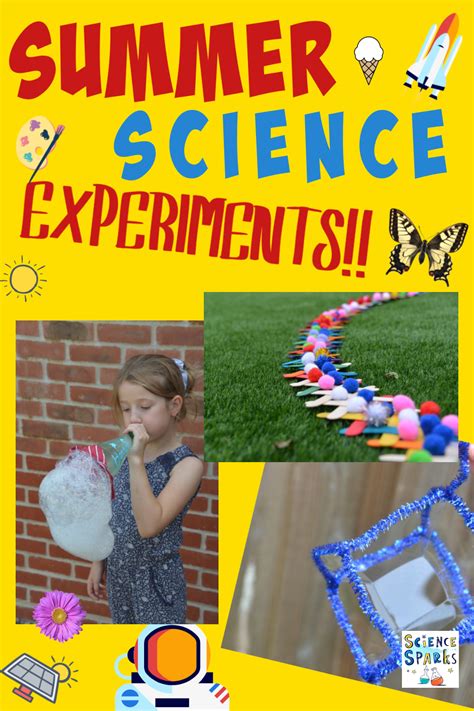The summer of 2024 offers a treasure trove of opportunities for young minds eager to explore the fascinating world of science. With an array of summer science programs tailored to various age groups and interests, parents and educators can empower their budding scientists to embark on an unforgettable journey of discovery.

The Importance of Summer Science Programs
Research conducted by the National Science Foundation indicates that students engaged in summer science programs experience a notable boost in their scientific literacy, critical thinking skills, and overall academic performance. These programs provide a nurturing environment where young learners can:
- Foster their passion for science through hands-on experiments and immersive activities
- Develop problem-solving abilities by tackling real-world scientific challenges
- Enhance their communication skills by presenting their findings and collaborating with peers
- Build confidence in their capabilities and discover potential career paths in STEM fields
Finding the Right Summer Science Program
Navigating the myriad of summer science programs can be overwhelming. Here’s a step-by-step approach to finding the perfect fit:
1. Define Interests and Goals: Determine your child’s specific interests in science and their goals for the program. Are they curious about robotics, coding, or environmental studies? Do they aim to enhance their research skills or develop a broader scientific foundation?
2. Research and Compare Programs: Explore online directories, consult with educators, and attend virtual or in-person program fairs to gather information about different programs. Compare their curriculum, facilities, staff qualifications, and cost.
3. Consider Age and Location: Ensure that the program is age-appropriate for your child and offered at a convenient location. Some programs cater to younger children, while others focus on high school students preparing for college.
4. Read Reviews and Testimonials: Seek feedback from previous participants and guardians to gain insights into the program’s quality, effectiveness, and overall experience.
Notable Summer Science Programs for 2024
1. National Science Camp
- Location: West Virginia
- Age Range: 16-18
- Cost: $2,500
- Focus: Advanced STEM research projects, field studies, and leadership development
2. Stanford University Pre-Collegiate Summer Institute
- Location: California
- Age Range: 14-18
- Cost: $3,200
- Focus: Academic enrichment in science, technology, engineering, and mathematics
3. The Governor’s School for Science and Technology
- Location: Virginia
- Age Range: 16-18
- Cost: $0 (for Virginia residents)
- Focus: Intensive residential program covering advanced science courses, research opportunities, and STEM enrichment activities
4. Carnegie Science Center Summer Camps
- Location: Pennsylvania
- Age Range: 6-16
- Cost: Varies depending on program
- Focus: Hands-on, interactive science experiences ranging from robotics and coding to space exploration
Creative Applications of Summer Science Programs
1. STEM Career Exploration: Summer science programs can serve as stepping stones for students to explore potential career paths in STEM fields, such as medicine, environmental engineering, or computer science.
2. Future Innovation: By fostering critical thinking and problem-solving skills, summer science programs equip young learners with the tools necessary to address future challenges and drive scientific innovations.
3. Community Engagement: Some summer science programs incorporate outreach activities, allowing students to share their scientific knowledge and inspire younger generations.
4. Global Perspectives: Summer science programs that offer international experiences broaden students’ horizons, fostering an appreciation for diverse perspectives and global scientific collaborations.
Strategies for Making the Most of Summer Science Programs
1. Prepare Enthusiastically: Encourage your child to engage with science-related activities and discussions leading up to the program to build their excitement and knowledge base.
2. Foster Independence: Empower your child to take ownership of their learning experience by encouraging them to actively participate, ask questions, and seek guidance when needed.
3. Support Their Passion: Continue to support your child’s interest in science beyond the program by providing opportunities for experimentation, research, and scientific enrichment throughout the year.
Conclusion
Summer science programs in 2024 offer an invaluable opportunity for young scientists to embark on an enriching and transformative journey. By carefully choosing a program that aligns with your child’s interests and goals, you can ignite their passion for science, foster their critical thinking abilities, and empower them to make a meaningful impact in the world of tomorrow.
